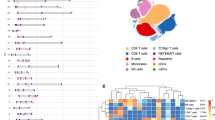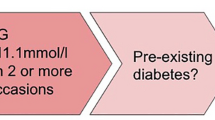Abstract
Background: Insulin antibody (IAb) may be produced in patients receiving long-term, animal-derived insulin, leading to insulin resistance or hypoglycemia. There have been very few reports of hypoglycemia caused by IAb in patients taking recombinant human insulin.
Case Report: We report the case of an 82-year-old male patient with type 2 diabetes mellitus who suffered repeated episodes of severe hypoglycemia-related symptoms (including coma) prior to admission. The patient had been taking Novolin 30R, a premixed human insulin. The patient’s IAb level was markedly elevated, and hypoglycemia caused by recombinant human insulin treatment-induced IAb production was diagnosed. Acarbose and metformin were prescribed, and the patient recovered uneventfully. The patient ceased taking these medications, and he was subsequently treated with recombinant human insulin to combat hyperglycemia. This was followed by reoccurrence of hypoglycemic coma. The patient was advised to avoid taking recombinant human insulin for the rest of his life and to control hyperglycemia with acarbose and metformin.
Conclusions: Although rare, hypoglycemia caused by recombinant human insulin-induced IAb production should be considered in patients with type 2 diabetes who experience repeated episodes of hypoglycemia.



Similar content being viewed by others
References
Turchin A, Matheny ME, Shubina M, et al. Hypoglycemia and clinical outcomes in patients with diabetes hospitalized in the general ward. Diabetes Care 2009; 32: 1153–7
Auer RN. Hypoglycemic brain damage. Forensic Sci Int 2004; 146: 105–10
Jaeger C, Winter S, Eckhard M, et al. Binding characteristics and cross-reactivity of insulin autoantibodies and insulin antibodies directed to three different insulin molecules. Acta Diabetol 2008; 45: 191–4
Oak S, Phan TH, Gilliam LK, et al. Animal insulin therapy induces a biased insulin antibody response that persists for years after introduction of human insulin. Acta Diabetol 2010; 47: 131–5
Francis AJ, Hanning I, Alberti KG. The influence of insulin antibody levels on the plasma profiles and action of subcutaneously injected human and bovine short acting insulins. Diabetologia 1985; 28: 330–4
Wredling R, Lins PE, Adamson U. Prevalence of anti-insulin antibodies and its relation to severe hypoglycaemia in insulin-treated diabetic patients. Scand J Clin Lab Invest 1990; 50: 551–7
Heise T, Bott S, Tusek C, et al. The effect of insulin antibodies on the metabolic action of inhaled and subcutaneous insulin: a prospective randomized pharmacodynamic study. Diabetes Care 2005; 28: 2161–9
Ionescu-Tirgoviste C, Mincu I, Simionescu L, et al. Disappearance rate of insulin antibodies after discontinuing insulin treatment in 42 type 2 (non-insulin-dependent) diabetic patients. Diabetologia 1984; 27: 592–5
Suzuki K, Hirayama S, Ito S. A case of a non-insulin dependent diabetic patient with regular spontaneous hypoglycemic attacks, which were due to insulin-binding antibodies induced by human insulin therapy. Tohoku J Exp Med 1997; 182: 163–73
Kim MR, Sheeler LR, Mansharamani N, et al. Insulin antibodies and hypoglycemia in diabetic patients: can a quantitative analysis of antibody binding predict the risk of hypoglycemia? Endocrine 1997; 6: 285–91
Brooks-Worrell BM, Nielson D, Palmer JP. Insulin autoantibodies and insulin antibodies have similar binding characteristics. Proc Assoc Am Physicians 1999; 111:92–6
Vahasalo P. Autoantibodies to insulin have similar affinity to that of antibodies to exogenous insulin but lower binding capacity. Eur J Clin Invest 1992; 22: 772–6
Ishizuka T, Ogawa S, Mori T, et al. Characteristics of the antibodies of two patients who developed daytime hyperglycemia and morning hypoglycemia because of insulin antibodies. Diabetes Res Clin Pract 2009; 84: e21–3
Van Haeften TW, Bolli GB, Dimitriadis GD, et al. Effect of insulin antibodies and their kinetic characteristics on plasma free insulin dynamics in patients with diabetes mellitus. Metabolism 1986; 35: 649–56
Discher T, Seipke G, Friedmann E, et al. Recurrent hypoglycemia in the insulin autoimmune syndrome. Dtsch Med Wochenschr 1990; 115: 1950–5
Matsuyoshi A, Shimoda S, Tsuruzoe K, et al. A case of slowly progressive type 1 diabetes with unstable glycemic control caused by unusual insulin antibody and successfully treated with steroid therapy. Diabetes Res Clin Pract 2006; 72: 238–43
Page KA, Dejardin S, Kahn CR, et al. A patient with type B insulin resistance syndrome, responsive to immune therapy. Nat Clin Pract Endocrinol Metab 2007; 3: 835–40
Qing Y, Zhou JG, Yuan G. Systemic lupus erythematosus presenting as hypoglycaemia with insulin receptor antibodies and insulin autoantibodies. Lupus 2009; 18: 457–9
Asai M, Kodera T, Ishizeki K, et al. Insulin lispro reduces insulin antibodies in a patient with type 2 diabetes with immunological insulin resistance. Diabetes Res Clin Pract 2003; 61: 89–92
Greenfield JR, Tuthill A, Soos MA, et al. Severe insulin resistance due to anti-insulin antibodies: response to plasma exchange and immunosuppressive therapy. Diabet Med 2009; 26: 79–82
Uchigata Y, Hirata Y. Insulin autoimmune syndrome (IAS, Hirata disease). Ann Med Interne (Paris) 1999; 150: 245–53
Uchigata Y. The novel agent, alpha lipoic acid, can cause the developement of insulin autoimmune syndrome. Intern Med 2007; 46: 1321–2
Fineberg SE, Kawabata TT, Finco-Kent D, et al. Immunological responses to exogenous insulin. Endocr Rev 2007; 28: 625–52
Acknowledgments
No sources of funding were used to prepare of this report. The authors have no conflicts of interest that are directly relevant to the content of this report.
Author information
Authors and Affiliations
Rights and permissions
About this article
Cite this article
Zhao, TY., Li, F. & Xiong, ZY. Frequent Reoccurrence of Hypoglycemia in a Type 2 Diabetic Patient with Insulin Antibodies. Mol Diag Ther 14, 237–241 (2010). https://doi.org/10.1007/BF03256379
Published:
Issue Date:
DOI: https://doi.org/10.1007/BF03256379




